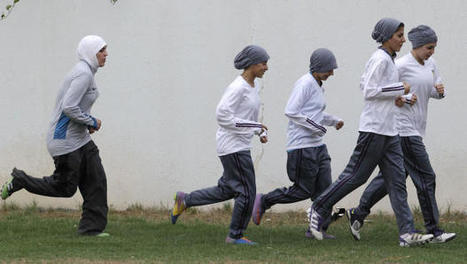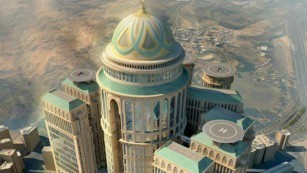Saudi Arabia produces much of its electricity by burning oil, a practice that most countries abandoned long ago, reasoning that they could use coal and natural gas instead and save oil for transportation, an application for which there is no mainstream alternative. Most of Saudi Arabia’s power plants are colossally inefficient, as are its air conditioners, which consumed 70 percent of the kingdom’s electricity in 2013. Although the kingdom has just 30 million people, it is the world’s sixth-largest consumer of oil.Now, Saudi rulers say, things must change. Their motivation isn’t concern about global warming; the last thing they want is an end to the fossil-fuel era. Quite the contrary: they see investing in solar energy as a way to remain a global oil power. The Saudis burn about a quarter of the oil they produce—and their domestic consumption has been rising at an alarming 7 percent a year, nearly three times the rate of population growth.
Tags: Saudi Arabia, energy, resources, consumption, Middle East, sustainability.



 Your new post is loading...
Your new post is loading...














A great article discussing energy reform in Saudi Arabia. Another good source of information about some of the reforms being implemented in the kingdom can be found at this link:
https://www.youtube.com/watch?v=DVgWtOeWNgg
Interesting to see how this change in energy consumption will effect Saudi politics and the economy.
Good for Saudi Arabia
The irony here is palpable- if the Saudis overtake the US in terms of solar power, I think I'd lose hope for our future. The most infamous oil-state on the planet has recognized that its costly domestic consumption of its vast oil supplies is hurting its profits, and it would rather seek an alternative energy supply to fuel its own nation so that it can sell more oil to foreign investors. The logic here is actually very sound- Saudi Arabia knows that there is money to be made by cutting down their own oil consumption, and even if the world sees how successful they are in their own adoption of solar power as their main source of electricity, most of the West won't be willing to make the same transition when there's so much Saudi oil to buy. Everyone wins- except American consumers, of course. Oh, and the planet- the burning of fossil fuels is a serious problem our generation must tackle if we are to minimize the damages created by man-made global warming. In the short-term, nothing is set in stone, as we have no idea how successful the Saudis will be in their attempt to harvest solar power on such a large scale. However, the implications of this move is huge- I can only imagine what an influx of Saudi oil on the market would do for US gas prices.